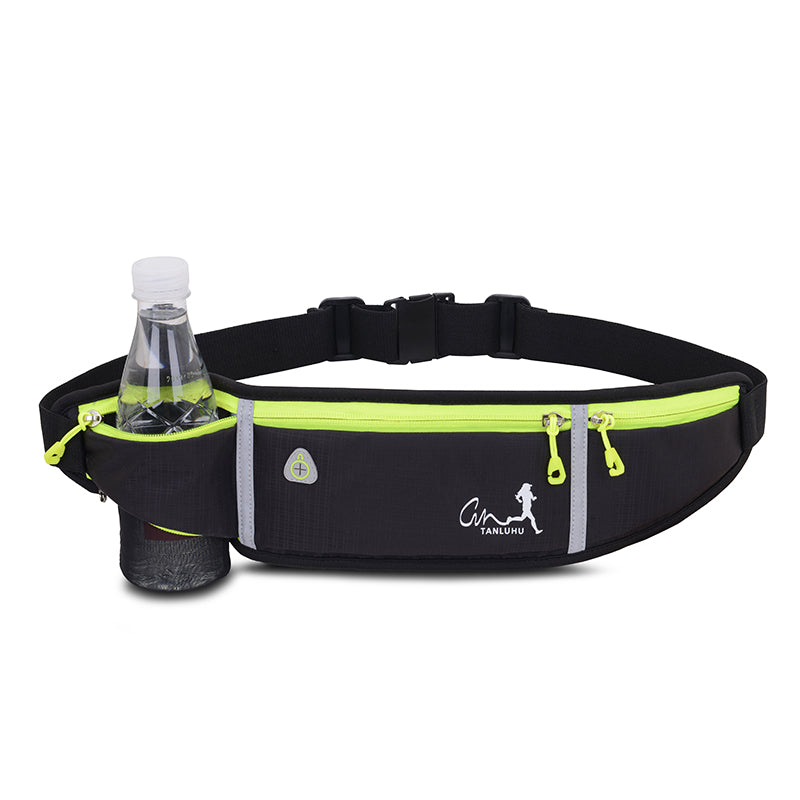Golden Rules" for Running in the Morning
When the first rays of morning sun come, everything wakes up and the air is filled with a fresh scent. Going out for a morning run at this time is undoubtedly the best start to the day.
Morning running can not only wake up the sleeping body and strengthen physical fitness, but also help the brain quickly enter a state of wakefulness, injecting full vitality into a day's work and life.
For many morning runners, they often wonder how many kilometers they should run to achieve best physical condition.
It is vital to run the right number of kilometers. Not only can it ensure that you enjoy the fun of exercise while avoiding excessive physical exertion, but it can also maximize the health benefits of morning jogging.
01 Reasonable Running Mileage.
Sports research shows it is a reasonable range to run 15-20 kilometers totally every week. This amount of running can not only avoid excessive consumption of the body but also ensure that sufficient exercise effects by appropriate exercise.
Generally speaking, it will not impose too heavy a burden on the body to keep 30-40minutes exercise in the morning. Instead, it can effectively improve cardiopulmonary function and the body's metabolism as a whole. This exercise duration fully complies with the internationally recognized health exercise standards and can bring a positive impact on the daily lives of morning runners.
02 Standards for different ages.
Among people who participate in morning running, there are certain differences in physical fitness and body condition among different age groups. Therefore, It also affects the running distances.
Firstly, you can take the 12-minute running challenge to test your running ability and record the number of kilometers you can complete. Next, we can use this data to make a comparison and see what level your physical fitness is.
For friends aged 30 to 39, if you can't finish running 2 kilometers within 14minutes, you may need to strengthen your exercise. If you can easily complete 2.5 kilometers, it indicates that your physical condition is quite good. And if you can exceed 2.6 kilometers, then you are among the best among your peers.
For friends who have stepped into the age group of 40 to 49, if you can't complete 1.5 kilometers within 12 minutes, you may need to pay attention to your physical condition. If you can finish running 2.4 kilometers, it means that you maintain good physical fitness. And if you can exceed 2.5 kilometers, it implies that your physical condition is very excellent.
As for friends over 50 years old, if you can't complete 1.5 kilometers within 14 minutes, you may need to pay more attention to your health. If you can complete 2 kilometers, it indicates that your physical condition is fairly good. And if you can exceed 2. kilometers, then you are definitely the fitness star among your peers.
Everyone should adjust the running distance according to their own physical condition to maintain safety while achieving health improvement. Such adjustments can not only help people of different age groups achieve better exercise results but also effectively avoid the occurrence of sports injuries.
03 Preparations before morning running.
For people with hypoglycemia, it is necessary to have a proper meal before running. You can choose some snacks rich in carbohydrates, such as bananas or whole wheat bread, to ensure the stability of blood sugar levels and avoid discomfort during exercise.
For ordinary people, you could keep on an empty stomach for short-distance running in the morning. This does not only help to improve the efficiency of fat burning but also avoids stomach discomfort such as abdominal distension.
Of course, it depends on person. If an individual feels tired or dizzy on an empty stomach, they should consider consuming an appropriate amount of nutrients before running to ensure that the body has sufficient energy support.
Besides diet, warming up before running is also an important aspect that cannot be ignored. Simple stretching exercises and joint movements can effectively wake up the body, prepare the muscles and joints for running, and reduce the risk of sports injuries.
Setting a reasonable wake-up time and ensuring sufficient sleep will help maintain abundant physical strength and a positive attitude during morning running.
Doing these preparatory work well, morning running can not only become a source of vitality for the day, but also be the best start to reflect self-discipline and a healthy lifestyle.
04 Suggestions for Healthy Life.
The value of morning running lies in its ability to promote physical and mental health and a self-disciplined life. However, too much is as bad as too little, so it is particularly important to reasonably control the distance and time of morning running.
While running, it is recommended to gradually increase or adjust the running distance according to your own physical condition. For beginners, the sense of enjoyment and comfort during running is quite important, and there's no need to be eager for quick results.
At the beginning, you can run 1 to 2 kilometers every day. After getting used to it, you can slowly increase it to 3 kilometers or even 5 kilometers every day. Such a gradual progress does not only help to improve cardiopulmonary function, but also can enhance muscle strength and improve the body's endurance.
Meanwhile, make sure enough rest days every week to give your body time to recover, so as to prevent sports injuries caused by overwork. Regularly evaluate your morning running plan and make adjustments timely to maintain the best balance between your personal energy and physical condition.
How many kilometers and how long do you usually run in the morning? Welcomed to leave messages and share!





















